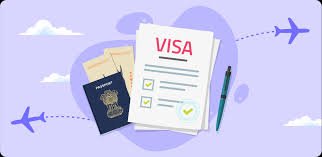In the ever-evolving landscape of international travel, the process of obtaining visas has undergone a significant transformation. Online visa applications, or eVisas, have become a crucial part of this shift, offering travelers a more efficient and streamlined approach to securing the necessary documentation for their trips. As we move through 2024, several trends and advancements in online visa systems are shaping the future of global travel. This article explores these trends and offers practical tips for navigating the online visa application process effectively.
1. Emergence of Enhanced Digital Security Measures
One of the most notable trends in online visa applications for 2024 is the increased focus on digital security. As cyber threats and data breaches become more sophisticated, governments and visa processing authorities are investing heavily in advanced security technologies to protect applicants’ personal information.
Multi-factor authentication (MFA) and biometric verification are becoming standard features in many online visa systems. MFA requires applicants to provide multiple forms of identification before submitting their applications, such as a combination of passwords, text message codes, or biometric data. Biometric verification, including facial recognition and fingerprint scanning, adds an additional layer of security by ensuring that the person applying for the visa is indeed the person they claim to be.
These enhanced security measures not only safeguard sensitive data but also reduce the risk of fraudulent applications. Travelers can now feel more confident that their personal information is protected throughout the visa application process.
2. Integration of Artificial Intelligence and Machine Learning
Artificial Intelligence (AI) and Machine Learning (ML) are playing increasingly important roles in the online visa application process. These technologies are being employed to streamline application reviews, improve decision-making, and enhance the overall efficiency of visa processing systems.
AI-powered algorithms can analyze vast amounts of data quickly, identifying patterns and anomalies that might indicate fraudulent activity or inconsistencies in applications. For example, AI systems can flag discrepancies in application details or cross-reference applicant data with global watchlists to detect potential security risks.
Additionally, ML models are being used to predict application outcomes and provide more accurate processing time estimates. This allows travelers to better plan their trips and reduces uncertainty about visa approval timelines.
3. Growing Popularity of Visa Waiver Programs
As online visa systems become more sophisticated, many countries are expanding their visa waiver programs to include more nationalities. Visa waivers allow travelers from certain countries to enter a destination without the need for a traditional visa, provided they meet specific entry requirements.
In 2024, we are seeing a broader adoption of visa waiver programs, driven by the desire to facilitate tourism and business travel while maintaining security standards. For instance, countries like the United States, Canada, and Australia have expanded their Electronic Travel Authorization (ETA) or Electronic System for Travel Authorization (ESTA) programs to include additional countries.
Visa waiver programs often involve an online application process similar to traditional eVisas, but they usually have fewer requirements and a quicker approval process. This trend not only simplifies travel for many tourists and business travelers but also boosts international tourism by making travel more accessible.
Tips for a Smooth Online Visa Application Experience
- Check Eligibility Requirements Early: Before starting your application, ensure you meet all the eligibility criteria for the visa or visa waiver program. Different countries have varying requirements, and it’s essential to confirm that you qualify to avoid delays or rejections.
- Ensure Accurate Information: Double-check all details on your application to avoid mistakes that could lead to processing delays or denials. Verify your personal information, travel details, and supporting documents for accuracy.
- Stay Updated on Processing Times: Online visa processing times can vary depending on the country and the volume of applications. Check the official visa website for estimated processing times and apply well in advance of your planned travel date to account for any potential delays.
As the world continues to adapt to new technological advancements, online visas are becoming an increasingly integral part of international travel. By staying informed about the latest trends and following these practical tips, travelers can navigate the online visa application process with greater ease and confidence.
